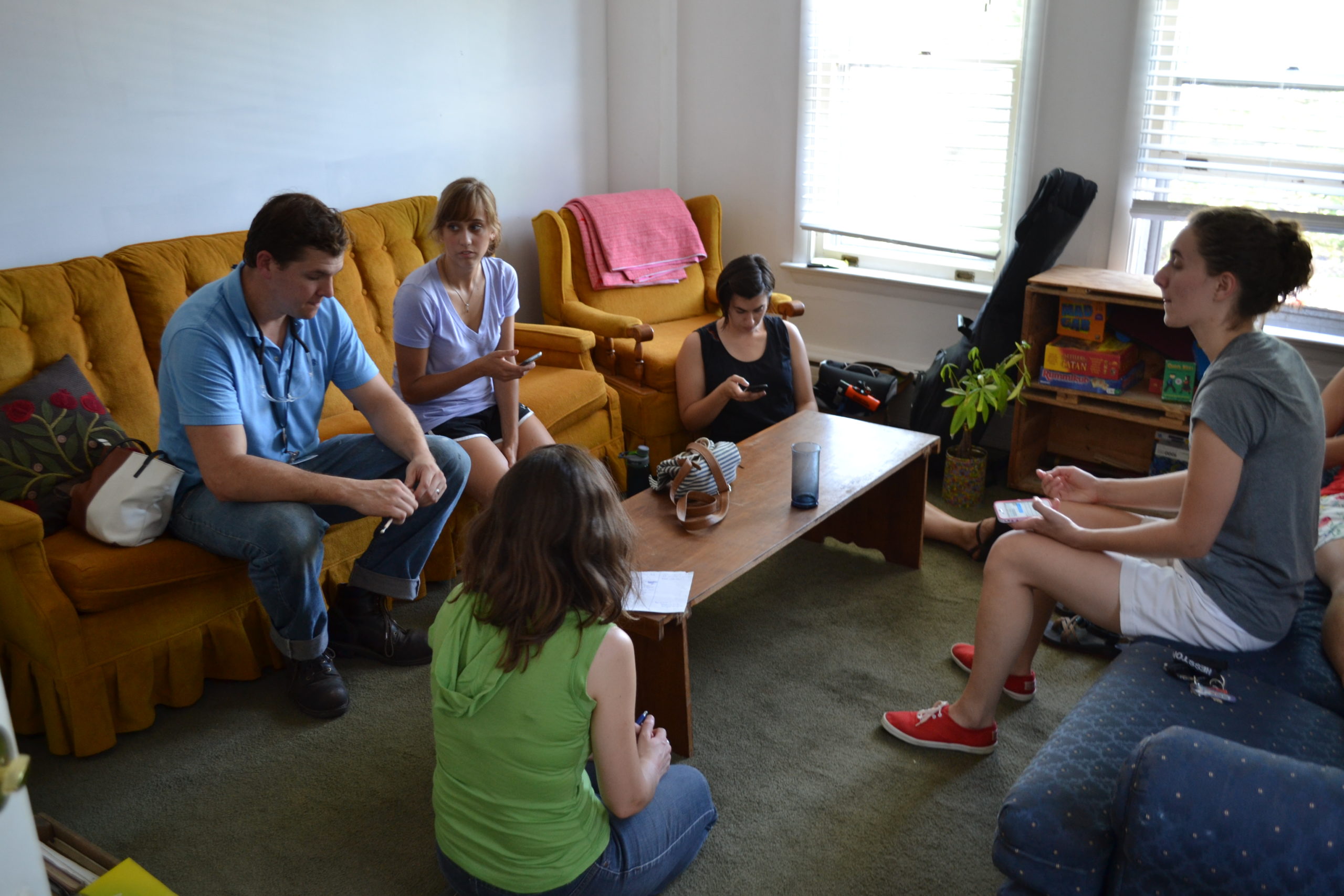 Nathan Grieser lives in Lancaster, Pennsylvania with his wife Kate and daughter Ivy. He enjoys directing The Shalom Project, bicycle commuting, making music and growing fruits and vegetables in his city-sized backyard. Nathan is passionate about participating in God’s process of restoration and transformation alongside The Shalom Project participants.
Nathan Grieser lives in Lancaster, Pennsylvania with his wife Kate and daughter Ivy. He enjoys directing The Shalom Project, bicycle commuting, making music and growing fruits and vegetables in his city-sized backyard. Nathan is passionate about participating in God’s process of restoration and transformation alongside The Shalom Project participants.
Lancaster (city), Pennsylvania, is a small urban setting that has been attracting quite a few young adults in recent years. It also has its fair share of needs and challenges. In 2011, several Mennonite pastors in the city began meeting regularly to dream about ways we might connect the gifts and energy of young people with the needs of this place.
We asked a lot of questions in those early conversations:
What is God up to in Lancaster? How might we join in?
What does it mean to extend shalom – the wholeness and peace God desires for all people – in this place?
The Shalom Project represents our best effort at answering these questions. It is a product of several years of hard work, prayer and paying attention to God’s activity in Lancaster. College graduates join The Shalom Project for one year, starting in August
- to build relationships and extend shalom in Lancaster,
- to live simply in community with other participants in Lancaster city,
- to develop professionally by working for 35 hours per week with a local organization that is matched to the participant’s skills and interest,
- to grow spiritually through individual and group practices.
As director of The Shalom Project, I have learned much about the work of shalom in the short time since our launch. Here are several key learnings.
Shalom is both internal and external.
Even in a small city like Lancaster, the number of opportunities to do the good work of shalom can be overwhelming. We are called to this work, sharing ourselves in pursuit of wholeness and peace all around us. But sometimes our call is to set aside our Mennonite work ethic and simply bask in God’s shalom. Jesus invites us to actively pursue shalom in the world (the external) and experience God’s shalom ourselves (the internal). This is a balance we are seeking in The Shalom Project, because I think it allows us to flourish as people of faith.
Shalom is about relationship.
To pursue shalom authentically, we must do the hard work of building relationships, especially with people who are different from us.
One of our Shalom Project participants is working with refugees in Lancaster. As part of her job, she helped set up an apartment for a family that had not yet arrived, arranging furniture and stocking the apartment with things the family would need. Several weeks later our participant found herself again in this apartment, sitting in the living room with the family. She looked around and noticed all the ways that the family had made this space their own. In that moment, she said she thought about the immense challenges this family had overcome in their journey to Lancaster, and now they were, in some small way, making their mark on this place. She was grateful to have been part of that process. It was through relationship with this family that our participant discovered her role in sharing God’s wholeness and peace.
Shalom is often about the ordinary and mundane.
Generally, the stories we choose to tell about God’s activity are those which are most extraordinary, those which defy expectation and understanding. These stories are important, but I wonder if they skew our vision of God’s shalom. Most often God’s wholeness and peace comes to us and is shared through us, in very ordinary ways. If we look only for the extraordinary, we may miss these smaller gifts.
One of our Shalom Project participants is working in a thrift store. One day a deaf man came into the store, so our participant showed him around; they did their best to communicate without words. This man needed a mixing bowl, which happened to be on sale. Our participant walked to the sale chart with him, pointed to the green tag on the sign and then to the same tag on the bowl. The man understood, and they celebrated this little victory together. I believe this simple interaction was a picture of the shalom that God desires for all people. In giving her time and attention to this man, our participant was an agent of shalom, and she received a measure of it herself.
I’ve been grateful for the ways God’s shalom has been received and shared through The Shalom Project so far, and look forward to discovering, alongside our participants, what it means to participate in Jesus’ process of renewal, transformation and restoration in our neighbors and in ourselves.

